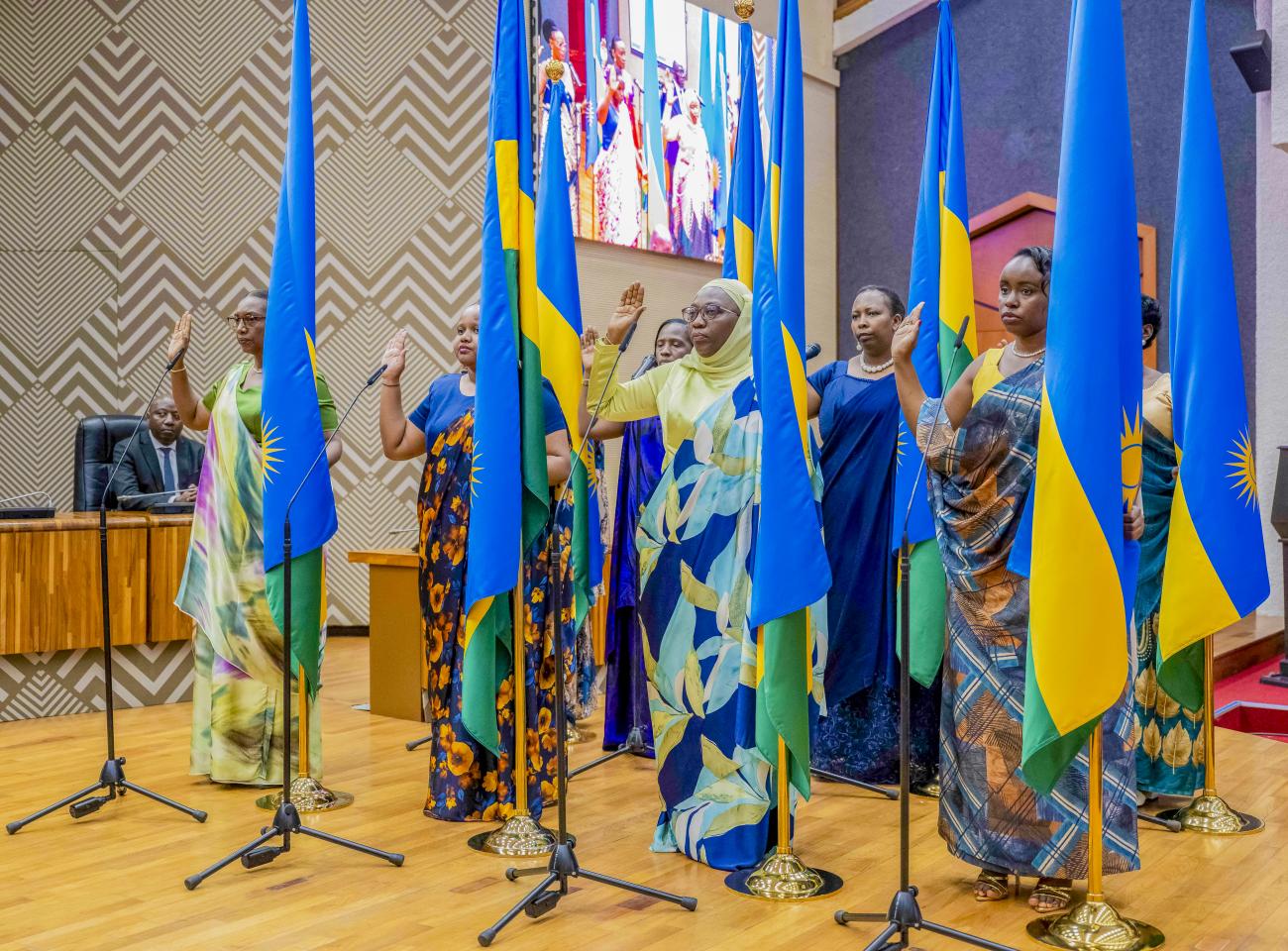In a remarkable stride towards gender equality, Rwanda has once again demonstrated its unwavering commitment to gender parity in its latest 2024 legislative election results. The percentage of women’s representation in the Chamber of Deputies increased from 61.3 in 2018 to 63.8 per cent of seats in 2024. According to the Constitution, at least 30 per cent of the lawmakers in the lower house must be women. That means that the percentage quota allocated to women corresponds to 24 MPs as the Chamber of Deputies has a total of 80 members. Other special categories include youth and people living with disabilities and for the first time, people living with disabilities are represented by a woman.
This achievement not only cements Rwanda’s status as a global leader in women’s representation but also underscores the nation’s dedication to creating a more inclusive and equitable society. These figures are more than just numbers; they reflect the country’s ongoing commitment to empowering women and ensuring their voices are heard at the highest levels of decision-making. UN Women proudly acknowledges and commends this significant milestone, which serves as an inspiring example for countries around the world.
Rwanda stands out globally for its efforts in advancing gender equality and women’s empowerment (GEWE), particularly in political participation, leadership and other sectors. According to the World Economic Forum’s Global Gender Gap Report 2023, Rwanda together with other countries in Sub-Saharan Africa such as Namibia and South Africa, along with 13 other countries, have closed more than 70% of the overall gender gap, the sixth- highest among the eight regions at 68.2%, ranking above Southern Asia and the Middle East and North Africa.
Beyond the legislative arena, Rwanda has also made significant strides in achieving gender parity within its executive branch, further showcasing Rwanda’s commitment to creating a balanced and inclusive government. By ensuring that women are represented at all levels of governance, Rwanda is not only promoting equality but also fostering a government that is reflective of its diverse population.
Rwanda’s achievements in gender parity are not just a result of political will but also the outcome of comprehensive policies and programmes designed to support women’s empowerment. The country’s efforts to implement various initiatives aimed at increasing women’s participation in politics, including gender quotas, capacity-building programmes, and awareness campaigns, have been instrumental in creating an enabling environment where women can thrive as leaders and decision-makers.
“When women are included in decision-making processes, policies and legislation are more likely to address the needs and concerns of all citizens, leading to more inclusive and effective governance. Rwanda’s example demonstrates that gender parity is not only achievable but also beneficial to society as a whole,” said Mme Jennet Kem, UN Women Rwanda Country Representative.
“As the world continues to grapple with the challenges of achieving gender equality, Rwanda’s success story offers valuable lessons. It highlights the significance of political commitment, the implementation of gender-responsive policies, and the need for sustained efforts to break down barriers to women’s participation in leadership,” she added.
UN Women supports the government to strengthen global norms and standards for gender equality and women’s empowerment, and mainstream gender perspectives in other thematic areas, leveraging its role as a convenor and contributing to efforts to repeal discriminatory laws and policies. It works with key partners such as the National Gender Machinery comprised of Ministry of Gender and Family Promotion, National Women’s Council, Gender Monitoring Office and Rwanda Women MPs (FFRP) to ensure that all women and girls can fully and equally participate in decision-making, and can benefit from gender-responsive laws, policies, budgets, services, and accountable institutions.
In conclusion, UN Women extends its heartfelt congratulations to Rwanda for its extraordinary progress in advancing gender equality and stands ready to support and collaborate in furthering these efforts, ensuring that gender equality continues to go beyond numbers to impacting the lives of women and men, families and communities as well as the society at large.




